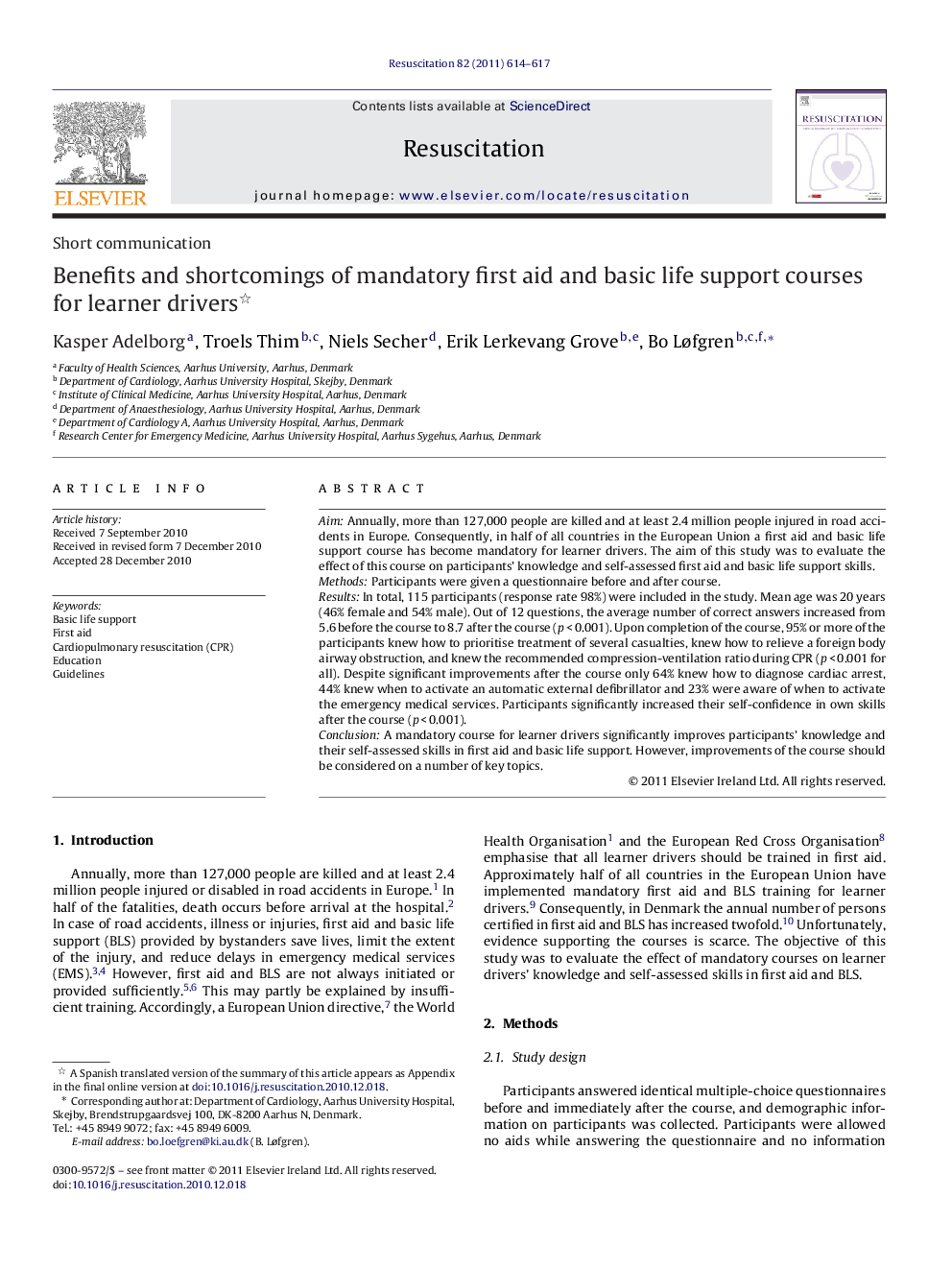| Article ID | Journal | Published Year | Pages | File Type |
|---|---|---|---|---|
| 3009685 | Resuscitation | 2011 | 4 Pages |
AimAnnually, more than 127,000 people are killed and at least 2.4 million people injured in road accidents in Europe. Consequently, in half of all countries in the European Union a first aid and basic life support course has become mandatory for learner drivers. The aim of this study was to evaluate the effect of this course on participants’ knowledge and self-assessed first aid and basic life support skills.MethodsParticipants were given a questionnaire before and after course.ResultsIn total, 115 participants (response rate 98%) were included in the study. Mean age was 20 years (46% female and 54% male). Out of 12 questions, the average number of correct answers increased from 5.6 before the course to 8.7 after the course (p < 0.001). Upon completion of the course, 95% or more of the participants knew how to prioritise treatment of several casualties, knew how to relieve a foreign body airway obstruction, and knew the recommended compression-ventilation ratio during CPR (p < 0.001 for all). Despite significant improvements after the course only 64% knew how to diagnose cardiac arrest, 44% knew when to activate an automatic external defibrillator and 23% were aware of when to activate the emergency medical services. Participants significantly increased their self-confidence in own skills after the course (p < 0.001).ConclusionA mandatory course for learner drivers significantly improves participants’ knowledge and their self-assessed skills in first aid and basic life support. However, improvements of the course should be considered on a number of key topics.
